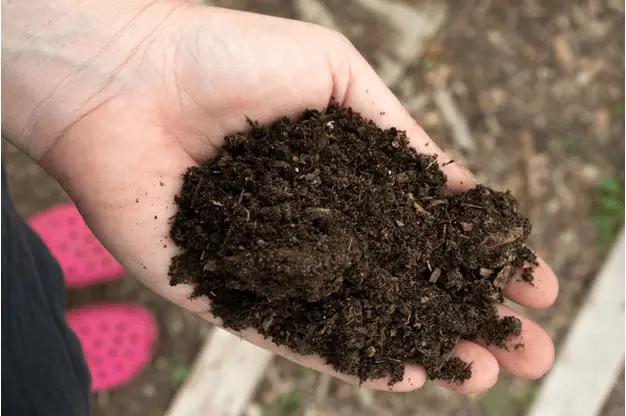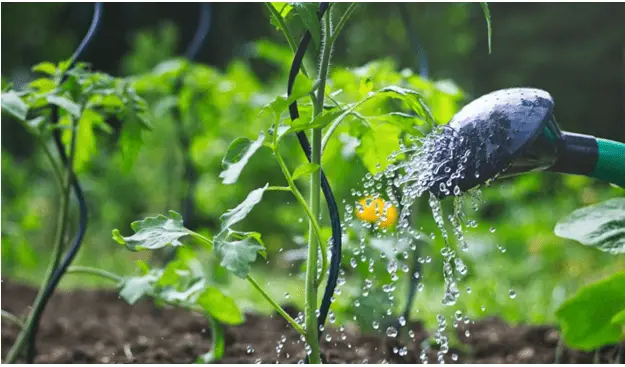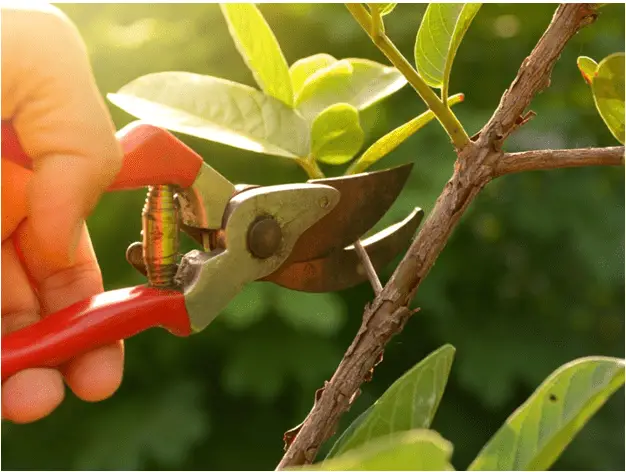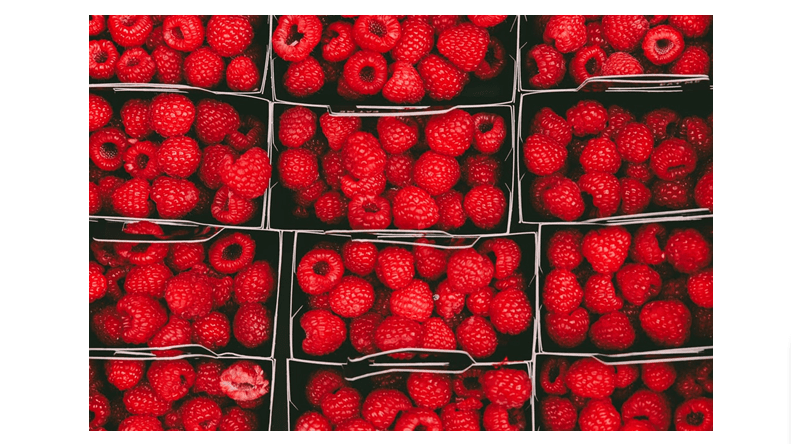The majority of people associate raspberries with a delicious summertime pleasure. The everbearing raspberry, on the other hand, is a kind of raspberry that can be cultivated in colder climes. Unlike the traditional June-blooming raspberry, everbearing types yield fruit throughout summer and into the fall.
If you’re one of the happy individuals who has a raspberry patch in their yard, or if you’re considering starting one, keep reading for some helpful hints on how to get the most out of your berries.
Growing everbearing raspberries differs from growing other varieties of raspberries, so use the suggestions below to get started. Even if you’ve previously planted raspberries, you’ll undoubtedly learn something new here. So, without further ado, let us get started!
1. Choose A Sunny Spot With Well-Drained Soil
Raspberries, like anything that grows from seeds, require sunshine to thrive. Choose a south-facing slope if you reside in a region with harsh winters. This will guarantee that your plants receive adequate sunlight during the shorter winter days.
Your plants should also have good drainage; otherwise, they may become waterlogged and decay. Planting them in the spring, after all, the risk of frost has gone, is the best option. Additionally, if your soil is thick clay, try adding organic matter to the planting hole.
2. Test The Soil

It is generally a good idea to examine the soil before planting anything in your yard. This can help you determine which nutrients your soil is deficient in so you may treat it correctly. A soil testing kit is available at your local gardening store or nursery.
If this is your first-time growing raspberries, raised beds may be a good option. This will provide your plants with a head start. It will also assist in improving drainage and preventing water logging of the roots. Additionally, growing raspberries in pots are one alternative.
3. Do Some Research
A little research, like everything else, goes a long way. When it comes to cultivating everbearing raspberries, it’s important to understand the many varieties of plants. Everbearing raspberries come in a variety of varieties, so it’s crucial to pick the one that best fits your needs. If you reside in a location with a short growing season, for example, you’ll want to pick a plant that produces fruit early. This will help you make the most of your raspberry patch.
4. Amend The Soil With Compost Or Manure

Although raspberries are not heavy feeders, they do benefit from some added nutrition. Before planting, modify the soil with compost or manure if you want your plants to be healthy and produce a lot of fruit. This will provide them with the impetus they require to get started.
Just be careful not to go overboard with the nitrogen; too much nitrogen might result in fewer fruit. Adding organic matter to the soil improves drainage and aeration while also enhancing moisture retention when done appropriately.
5. Mulch
One of the most beneficial things you can do for your raspberry bushes is to mulch them well. Mulching prevents weeds, preserves moisture, and keeps your plants’ roots cool in the summer heat. Additionally, because the berries will not be laying on the ground, picking them will be much easier.
You may use almost any kind of mulch, but straw is a wonderful choice since it decomposes slowly and contains no weed seeds. Many individuals make the mistake of not spreading enough mulch, so be sure to do it liberally!
6. Water Regularly

All plants require water, but did you know that raspberries are particularly susceptible to drought? Make sure to deep water your plants at least once a week, and more frequently if the weather is hot and dry. Stick your finger in the soil to check the moisture level; if it feels dry more than an inch deep, it’s time to water.
Give your raspberry plants a deep soaking once a week for the first year after planting. Once they’ve established themselves, you may cut down on watering every 10 days or so. Raspberries are drought-tolerant, so you won’t have to worry about them during long periods of drought. Just keep an eye on them and water them if the leaves begin to droop.
7. Fertilize In The Spring
Before new growth begins, treat your raspberry plants with an all-purpose fertilizer in early spring. Follow the package directions for the best results. Stop fertilizing once the berries begin to mature and let the plants rest. If you reside in a location with thick clay soil, try adding compost to your raspberry patch every year to aid with drainage. It’s the ideal time to start planning your garden and deciding what kinds of fruits and vegetables you want to cultivate.
8. Pruning

Before new growth develops, trim your raspberry plants in late winter or early spring. Remove any canes that produced fruit the previous year, as well as those that are weak or unhealthy. To improve air circulation, thin out congested spaces. Any suckers developing from the plant’s base should be removed as well.
Suckers are canes that sprout from the roots but do not bear fruit. Pruning your raspberry bushes is necessary to maintain a decent crop of berries and to avoid illness. Pruning also improves air circulation and keeps the plant from becoming excessively top-heavy.
9. Space Plants 3 Feet Apart For Best Results
When it comes to planting, raspberries are famously picky. They require full sunlight, well-drained soil, and lots of room to grow. When planting fresh raspberry canes, leave at least three feet between them.
This will allow them to flourish and prevent disease from occurring due to overpopulation. Planting plants 3 feet apart will also make it easy to collect the berries when the time comes. It’s also a good idea to space various raspberry kinds at least 10 feet apart to avoid cross-pollination.
10. Harvest Raspberries Throughout The Summer
You don’t want to wait all summer for your berries to mature just to discover that they’ve all been devoured by birds. Pick raspberries as soon as they’re ripe and keep them in the fridge to avoid this problem. During the summer, keep an eye on your plants and collect any ripe berries before they fall off. No concerns if you skip a few days; simply look beneath your vines for any ripe fruit that may have fallen.
Read more:
How Much Topsoil Do I Need? | What You Need to Know for Excellent Garden Growth
Best Folding Saw for Your Home and Garden
Further Watching:
Conclusion
To summarize, the tips for cultivating everbearing raspberries stated above will help you get the most out of your plant and assure a plentiful crop. Take good care of your raspberry crop this summer and enjoy the wonderful fruit it produces!

